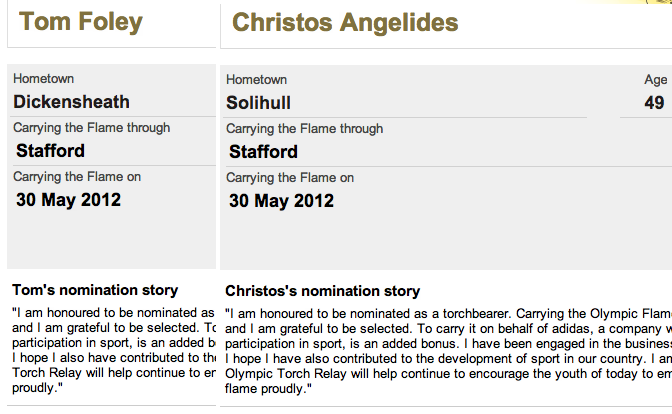If adidas’s own representatives are any indication, the way to get your hands on the Olympic torch in 2012 is to be “engaged in the business of sport for a number of years”.
An analysis of nomination stories on the London2012 site has found that 7 8 [UPDATE – see below] torchbearers were nominated with the same ‘nomination story’: Christos Angelides, Clare Ennis, Lucy Speakman, Simon Chapman, Chris Caddick, Jay Boey and Tom Foley – and now Mark Newton-Jones:
“Carrying the Olympic Flame is a once in a lifetime experience and I am grateful to be selected. To carry it on behalf of adidas, a company with a history of encouraging participation in sport, is an added bonus. I have been engaged in the business of sport for a number of years and I hope I have also contributed to the development of sport in our country.”
So who are they?
Most interesting is Christos Angelides – could this be the same Christos Angelides who is Group Product Director for Next, ranked 15th in Drapers Powerlist 2011 with a pay packet of £900k? Next are the official clothing and homeware supplier to the London Olympics, but a phonecall is needed… UPDATE: Confirmed.
And is that the Tom Foley that is general manager of Intersport? UPDATE: Confirmed.
Are Chris Caddick, and Jay Boey Adidas’s Warehouse Systems Manager and Category Manager for adidas respectively? UPDATE: Confirmed.

